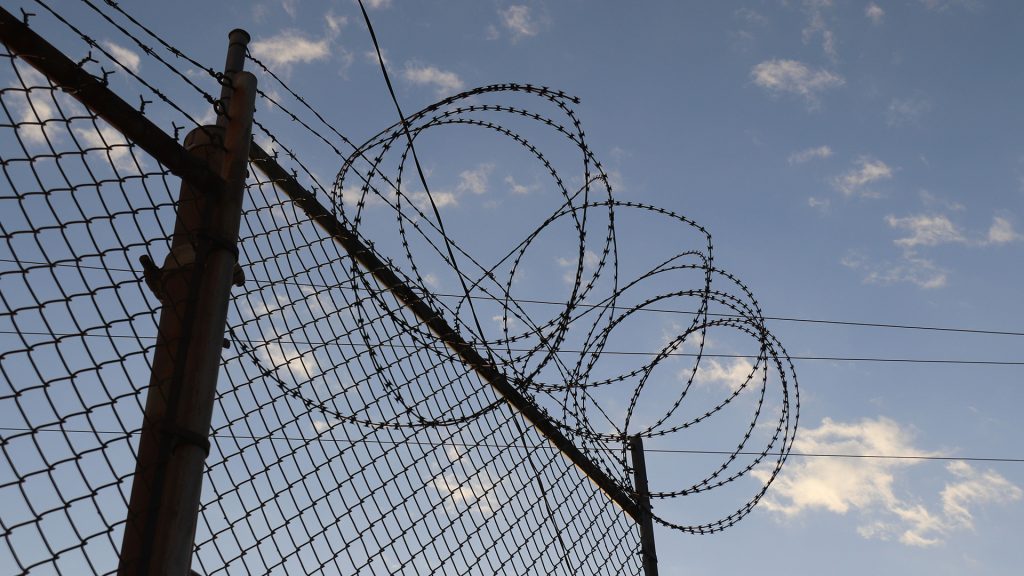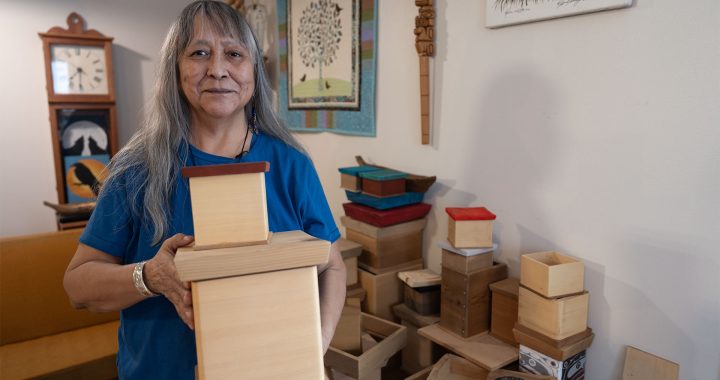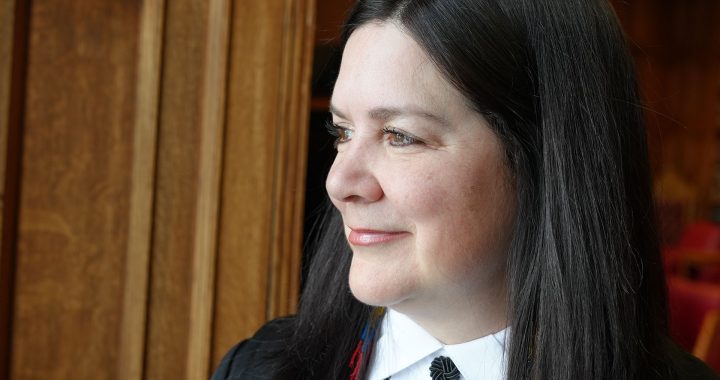
Razor wire atop a fence outside one of Canada's federal penitentiaries. Photo: APTN file
Canada has a new independent body to review wrongful convictions after Bill C-40 received royal assent Tuesday.
David and Joyce Milgaard’s Law – the Miscarriage of Justice Review Commission Act is supposed to make it faster and easier to identify and release potentially innocent people serving time in prison.
It is also supposed to improve access for Indigenous peoples, who make up the majority of federal prisoners in Canada and may have been victimized by racism in the justice system.
Presently, people who apply to the federal Department of Justice for a ministerial review of their case can wait years for a resolution. To date, that system has exonerated 30 people, most of whom were white males.
Three First Nations men from Manitoba were recently exonerated after 50 years for murder because of what the court said were forced confessions by the Winnipeg Police Service.
New law
The new law is named for David Milgaard, who spent 23 years in prison after being wrongfully convicted of murder in 1969, and his mother, Joyce Milgaard, who campaigned for his release.
David, who died a few years ago, lobbied for an independent commission to replace the justice minister when it came to reviewing and recognizing miscarriages of justice.
“My mother and brother fought so long and hard for this day,” said Susan Milgaard in a news release. “While they are no longer with us, I am glad I am here to see this legislation passed. It is the best Christmas present ever!”
The independent commission, which has yet to be established, would consider applications for review on the grounds that a miscarriage of justice has been committed in a finding or verdict.
Innocence Canada has helped free the bulk of wrongfully convicted persons and they were all serving time for murder. The commission will review applications from more types of federal crimes.
Delighted
“All of us at Innocence Canada are delighted by the passage of David and Joyce Milgaard’s Law, which creates a new and independent body of experts to address future claims of wrongful conviction,” the advocacy group said in a release.
“Justice Minister Arif Virani and his predecessor, David Lametti, deserve great credit for this ground-breaking legislation which will make for an enormous improvement to our criminal justice system.”
Virani noted the commission will help remove barriers for applicants, including Indigenous peoples, Black people, members of marginalized communities and female inmates.
“Evidence suggests that the current system has been failing to identify and address potential wrongful convictions of Indigenous peoples, women, and members of racialized or marginalized communities,” he said in a release. “We know that these communities are overrepresented in the criminal justice system, yet there have been extremely few miscarriages of justice identified from within them.”
The commission is expected to operate in English, French and Indigenous languages.
It is similar to those operating in England, Wales, Scotland, New Zealand and Norway.










